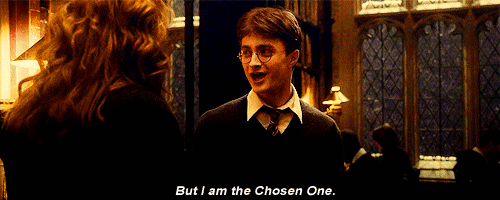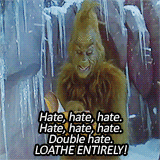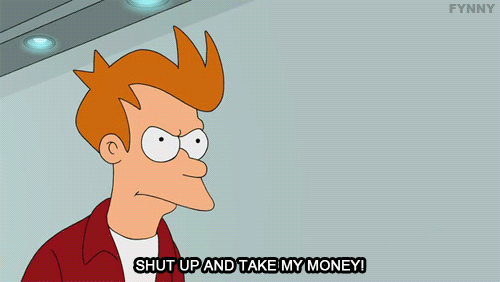But Friday and Saturday (today) were very busy. Friday, my mother visited around noon. I planned some stuff for us to do out in Bronxville, the college town of Sarah Lawrence. But first, we went to Panera Bread for lunch, because I use my parents visiting as an excuse to get Panera Bread. After Panera Bread, we had to go back to my apartment so that I could actually look up the addresses of all the places I found. Good job, me.
Then we went out to ShopRite to do some Purim shopping (Purim is a Jewish holiday which is like Halloween and Mardi Gras rolled into one, if you don't know) in which I got hamantashen (beautiful, wonderful Purim cookies). After ShopRite we made our way into Bronxville, where we had quite an adventure trying to find parking and scrounge up change for the meter. Parking in New York is the worst.
Finally, we went out walking into Bronxville. Bronxville is a gorgeous quaint little town. It was established way back in something like the seventeenth century, so a lot of the buildings are old and stone, and there's all sorts of impractical curling side-roads and stuff. We were on one of the busiest roads, which I think is part of the Historic District. Not sure. It was pretty cold out, so it wasn't super fun to walk, but we checked out a bunch of shops that I'd found on a bucket list some SLC student made. We went to Womrath's bookshop (your average small bookstore) and Slave to the Grind (which is an oddly named, but kind of adorable coffee shop. It looked like some medieval tavern on the outside and then a tiny crowded coffee place on the inside).
After checking out the shops, my mom was like "enough of this outdoors wintery hell" and we went back to our parking spot and decided to do what we always do and check out the library. Now, you need to prepare for this library. Think about the Beauty and the Beast library, but small. No, that's not good enough. OK, imagine an old Revolutionary era kind of house, like George Washington might have lived in. With beautiful parlors and big windows and an elaborate staircase. Now imagine someone furnished it with gorgeous carpets and antique furniture and cozy couches and window seats. And then filled it up with wooden bookshelves and library equipment and tons of old books and new books and computers, and hung beautiful paintings all over the walls. And also made a children's room with toys and books and crafts. IT WAS SO GREAT. We must have irritated some of the other patrons because we wouldn't shut up whispering, "Oh my god look at that! Look at that! Eeee!"
OK, I Google-Imaged the library to attempt to help you understand. Look:
Anyway. After sitting in the library for about two hours, we decided to go get dinner. We were going to have dinner in a fancy Italian restaurant, but we realized that parking would be a nightmare, so instead we went to Olive Garden. And don't give me a snide look because you think Olive Garden is tacky or something. I'll eat a hundred breadsticks. I don't care.
My mom left around 8-ish, and then I decided to ruin my evening with sadness by watching the How to Get Away with Murder season finale. Gah. Too much. I won't talk about it because spoilers.
Today, however, was not sad; it was really fun, because I had a field trip! My poetry class (which I talked about in the previous post) was going out to the Village, where our teacher lives. We arranged a van from our school to take us out there at 1 pm. It was a stunningly beautiful day- one of those February days where it feels like Persephone has come above ground just for the day and the sun is shining and the snow is melting. About five of us took the van (there's ten people in our class, but one person met us in the city, and four people just didn't show), not including the van driver, a first-year student who tagged along on our tour.
The drive was warm and lovely. I read my book for my Indian culture class, but after a while I couldn't focus because we'd reached the stretch of highway on the side of the river opposite Manhattan, where snowy forest lines the road and you can see all the possibilities laid out ahead of you. I looked out on the river, where the snow-covered ice was beginning to melt and crack and leave bare patches of sun-glittering blue, and thought about Walt Whitman. We'd read his poem "Crossing Brooklyn Ferry" in class, where he talked about all the people who had been there before him and all the people who would come after, even a hundred years after, even us, reading his poem right then. He was so aware of time, our teacher had said. But when you're eighteen it's easier not to be aware of time and to just feel each moment ephemerally, rushing by you, imprinting in your being for just one second like the brilliant February sun and wind on your skin. To love them all and let the moments go.
When we reached the Village, our van driver parked (ironically, it took her much less time to find parking in the actual city than it took me and my mom to find parking in Bronxville) and we all got out and met our teacher on the sidewalk. By the way, my teacher is Marie Howe- she's kind of famous because she's the poet laureate of New York, so you can look her up if you want. We met up with her, another student, and her daughter and her dog Jack. (Jack is the best member of our class, for sure.) And then we headed out on a short walking tour.
The first place we headed was the bar where Dylan Thomas had died of alcohol poisoning. I had been assigned to find a Dylan Thomas poem, memorize it, and recite it outside the bar. When I Googled him I found out that he had written "Do not go gentle into that good night," which is a poem I really like, so I decided to recite that one. I messed up a few times but I think I did rather well. Plus, nobody else actually memorized their poems, so I probably exceeded expectations there. :)
We then visited Thomas Merton's house, and one of my classmates recited his poem "Le Secret." (There should probably be an accent on that, but I hate doing French accents on this computer.) It was kind of difficult to recite to our class on the street with people constantly coming and going, but it was a fun experience.
Next we went to Edna St. Vincent Millay's tiny house and another classmate recited "I, Being Born a Woman and Distressed." After that we made our way through winding streets full of beautiful architecture to Marie's studio. It was in a narrow apartment building, up a few flights of stairs, and it was in an old, old building (old for New York anyway) with old architecture and windows over courtyards and things like that. We gathered around a small table by the windows and she got us some snacks and juice, and then we workshopped some poems. It was fun. Pretty small because only six of us were there (plus the van driver). Halfway through, one of my classmates left for work, so then there were even less. We just read our poems and then critiqued each other's, like we do in class.
About an hour or so later, we left and somebody suggested that we go to this nearby place that sells chai lattes, so we went. I had never had a chai latte before so I ordered something there to see what it was like- a matcha hot chocolate. It tasted like if herbal tea was creamy and had a little chocolate in it. It was nice and warmed me up as the city got colder in the night. I would have gotten an avocado toast or a fancy salad, which both looked really good, but they were also both ten dollars, so no.
After that, we got back into the van and drove back to campus, and now I'm here. As soon as I got back I went to write this entry, so nothing else has happened, but now I figure I should have dinner. Wow. What a long weekend. What a long post- sorry about that, haha!
Hope you enjoyed this post. I'll see you on Wednesday with a regular blog post.
-Ariel





